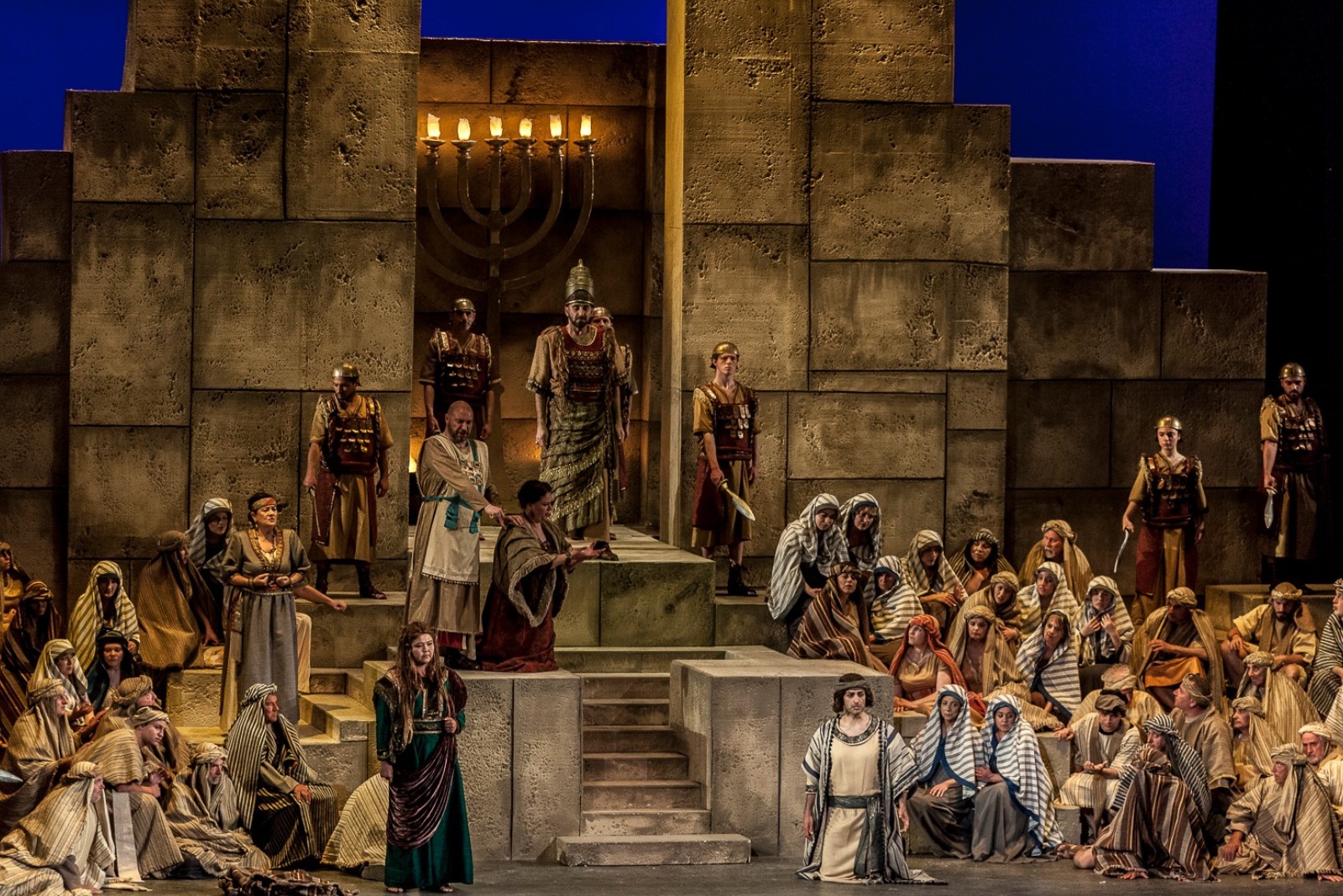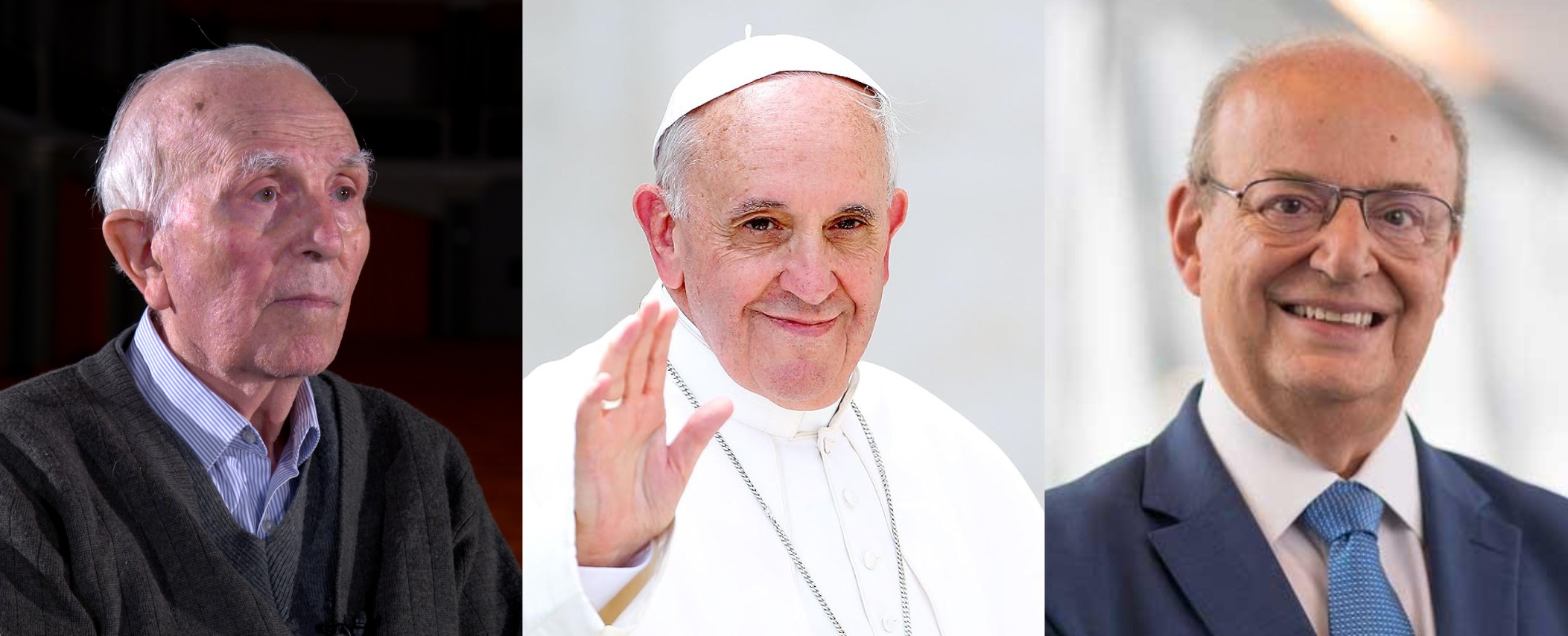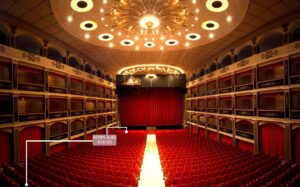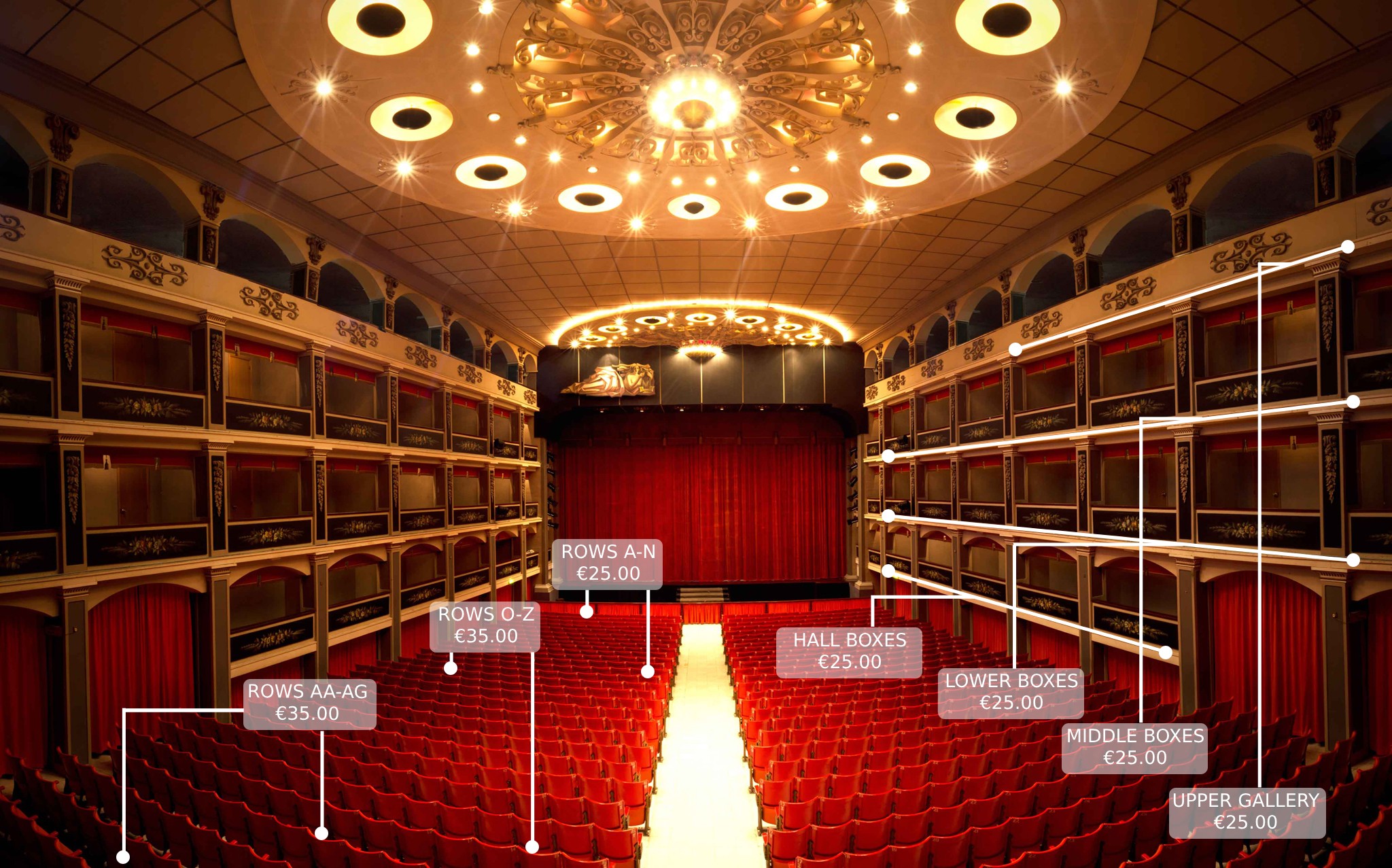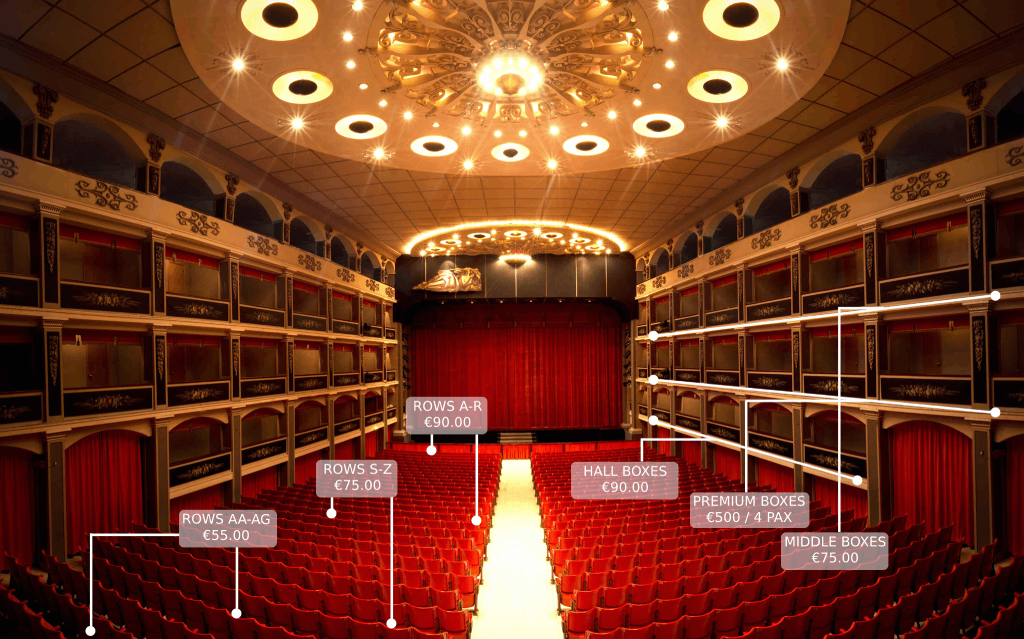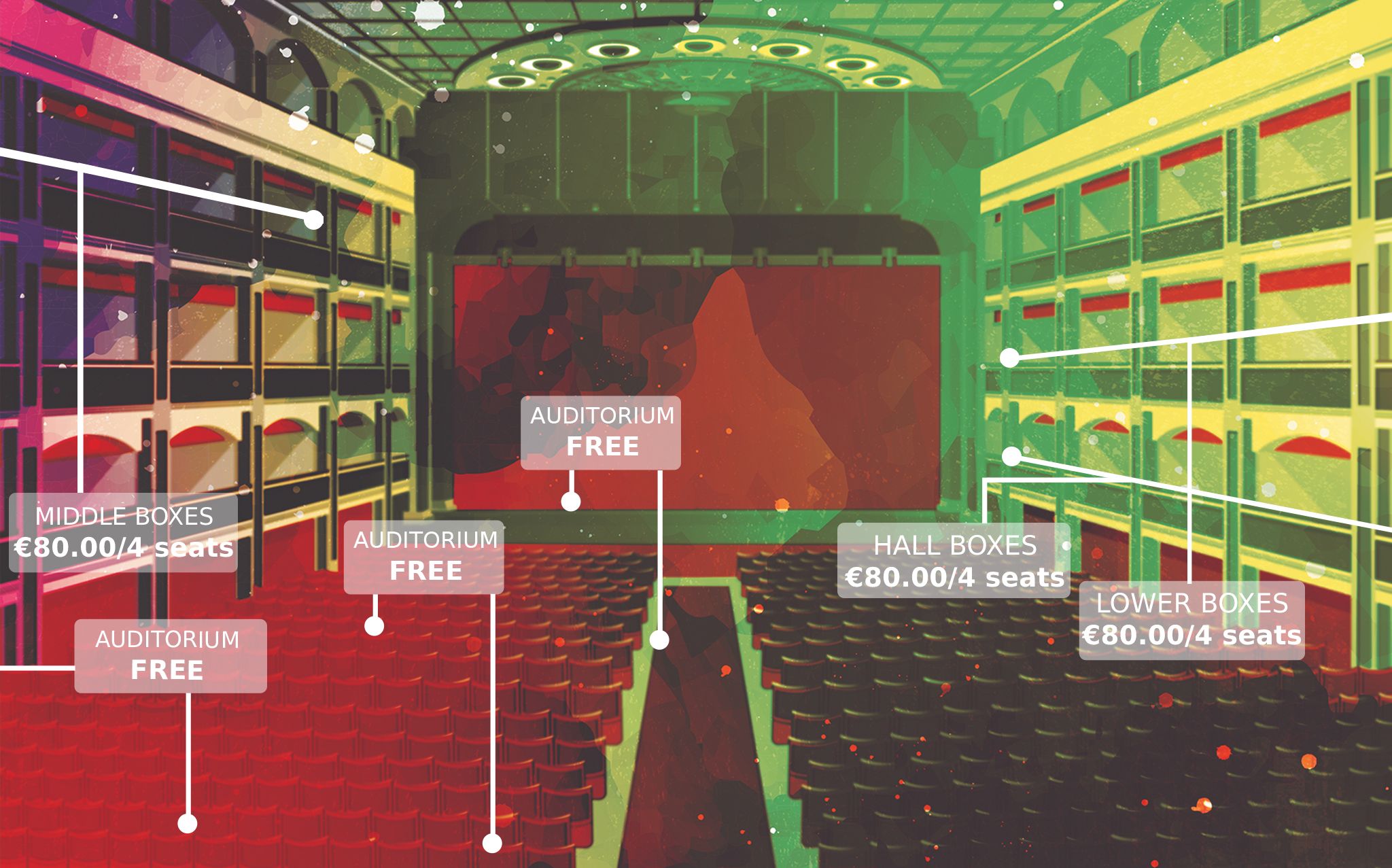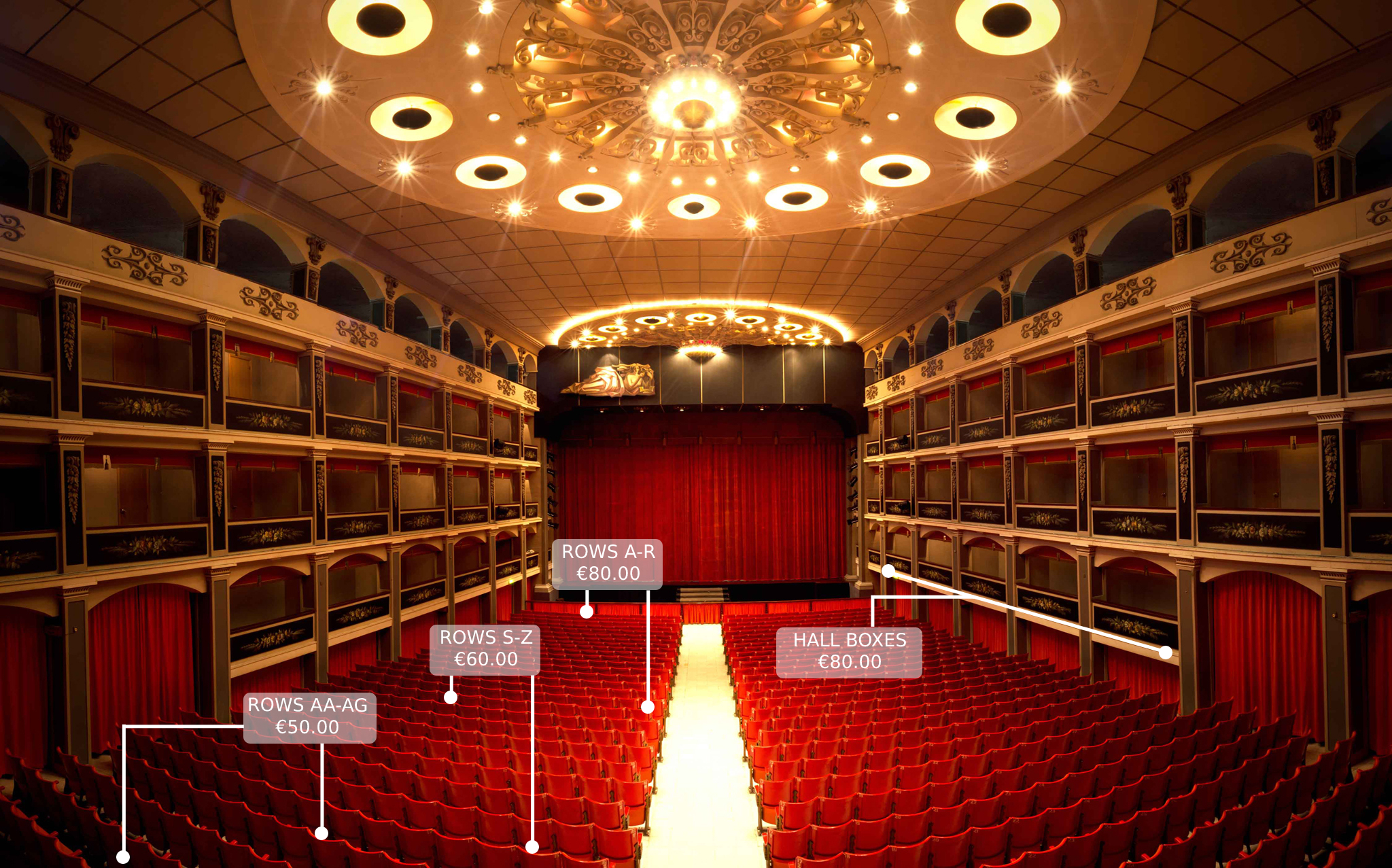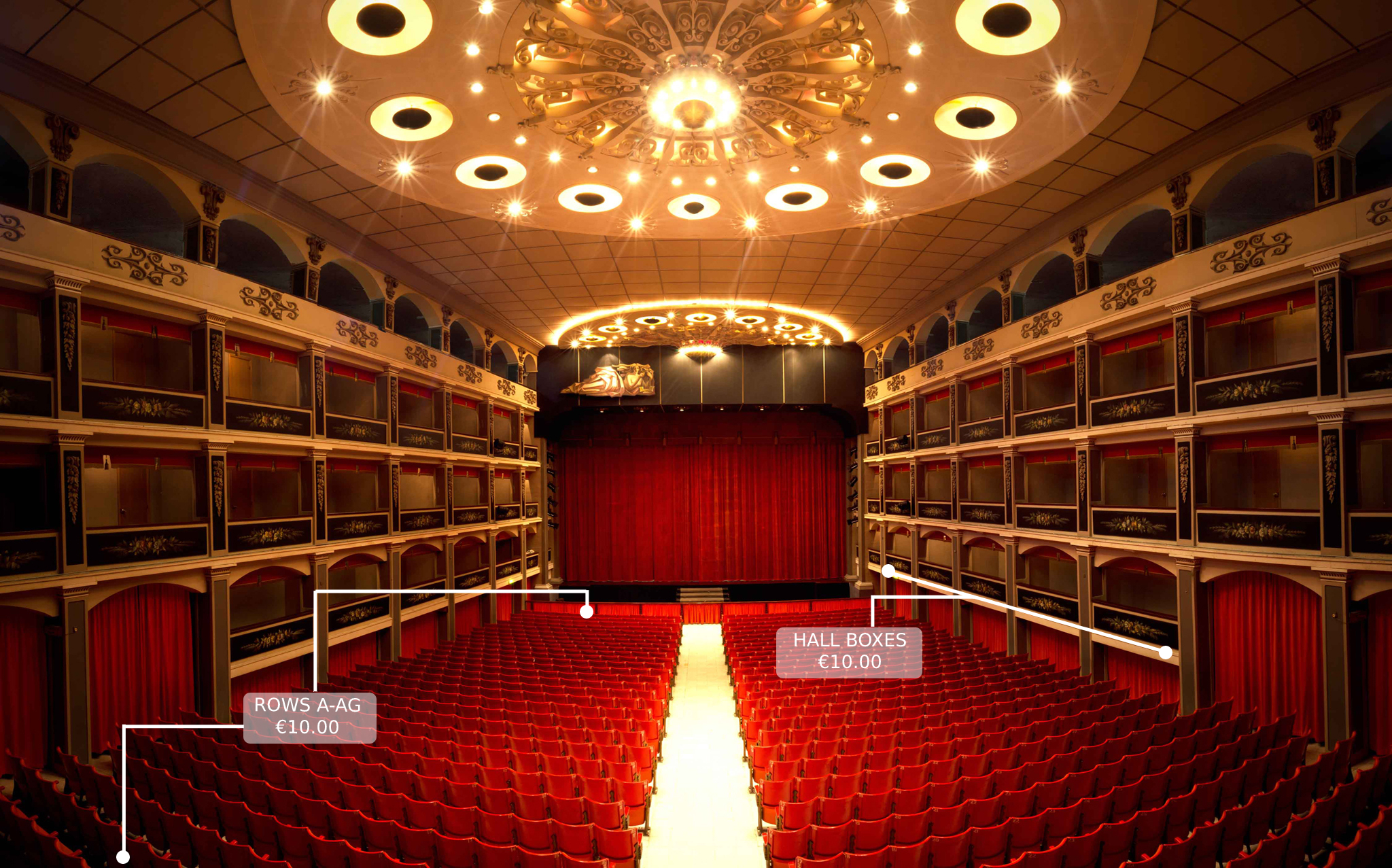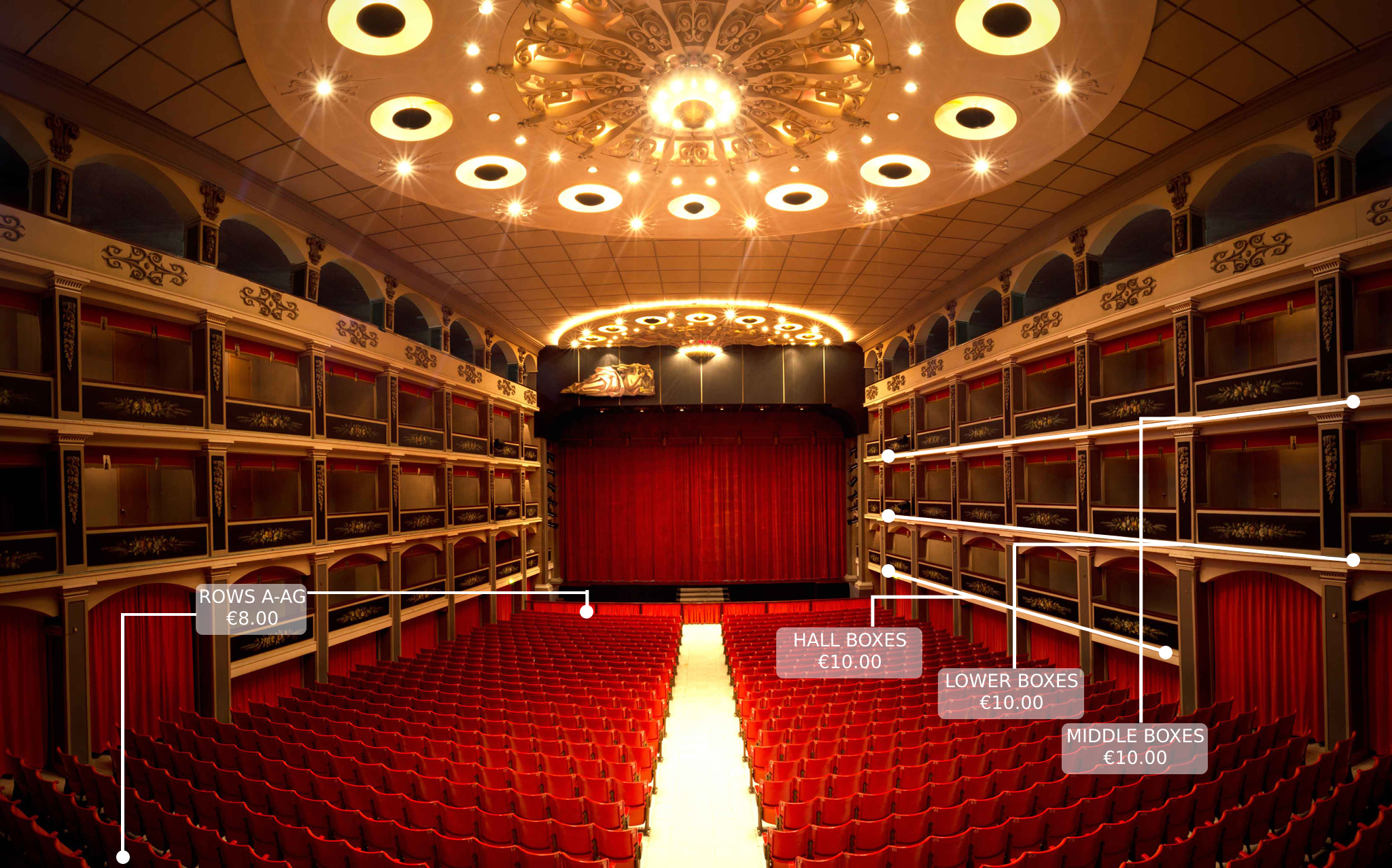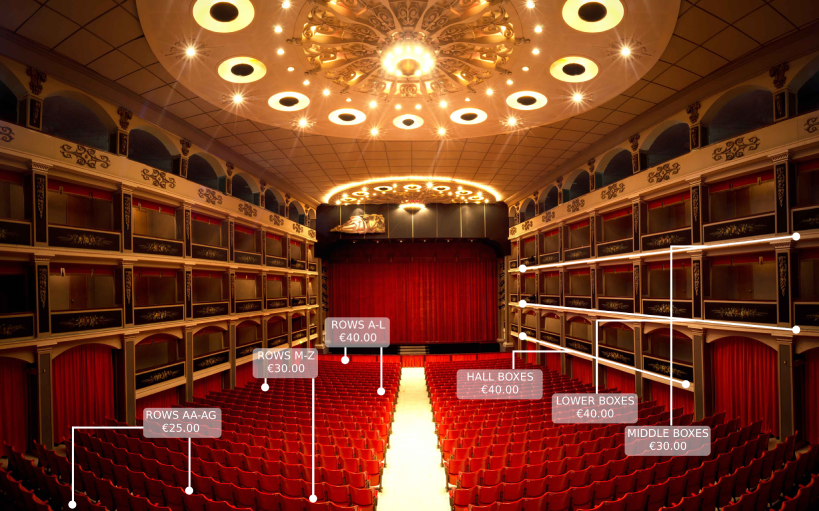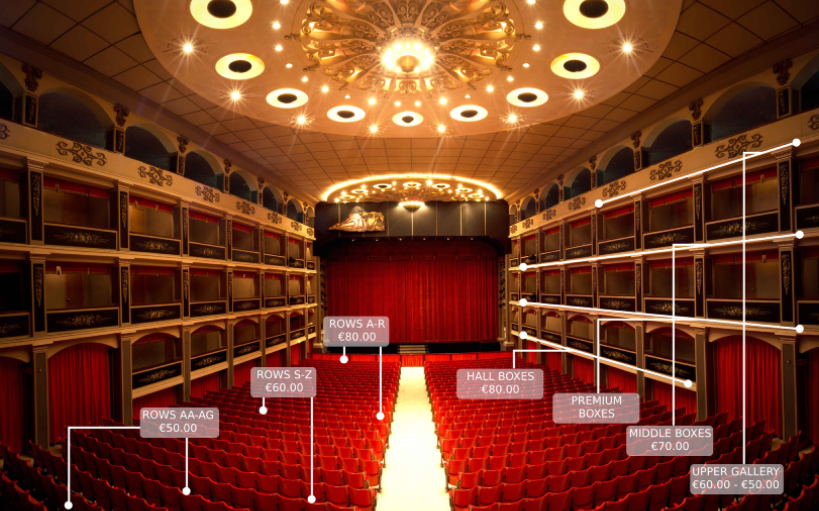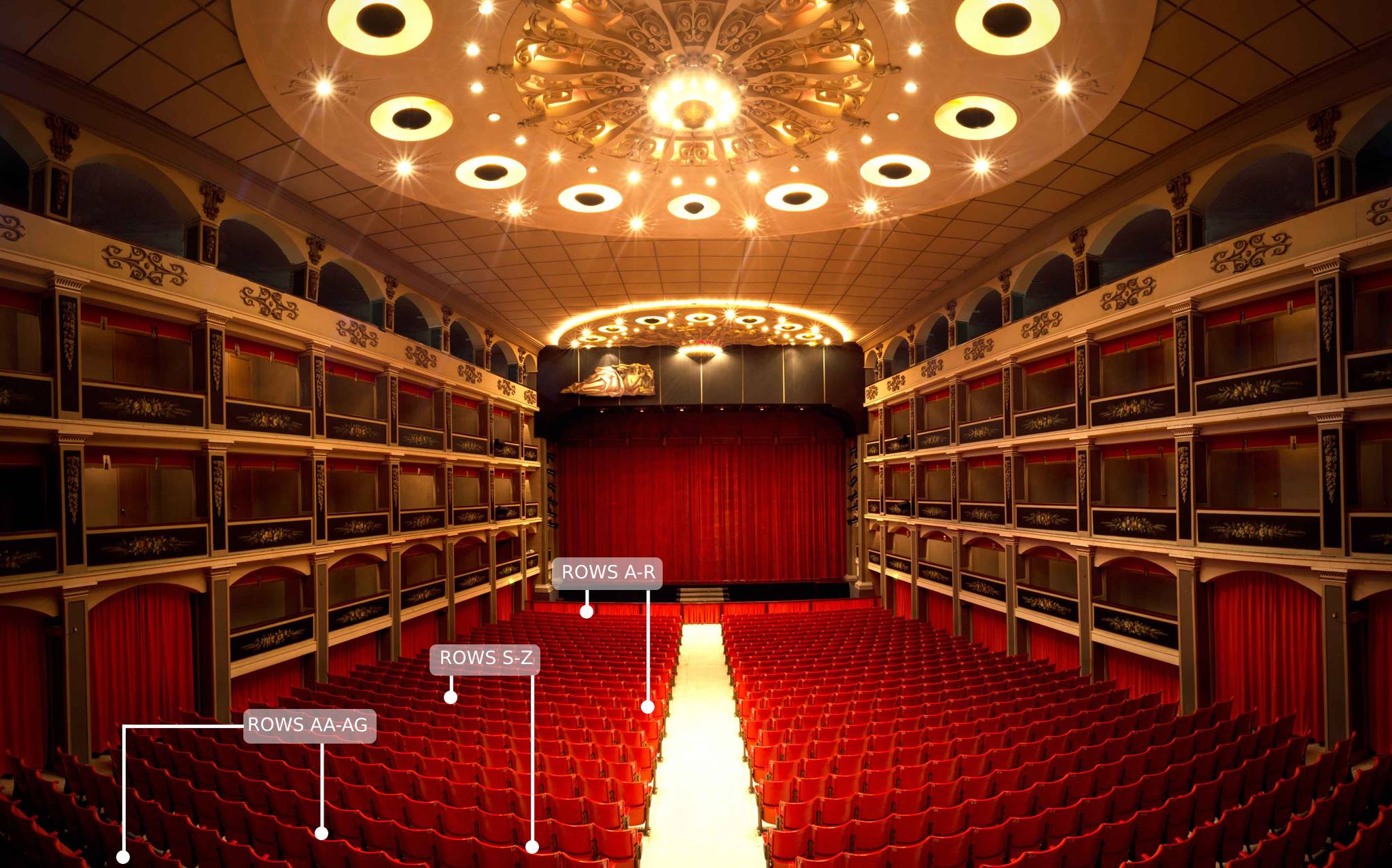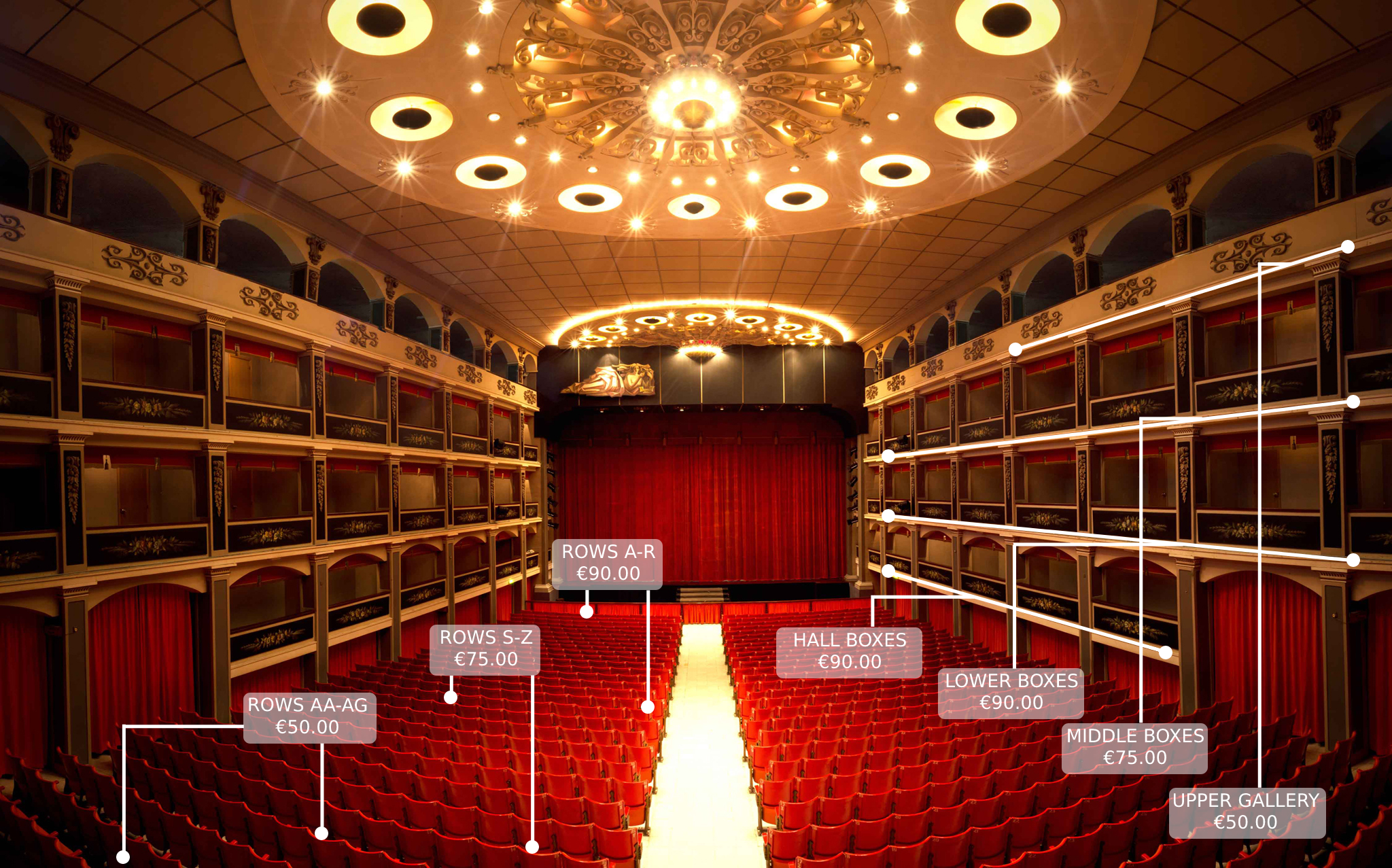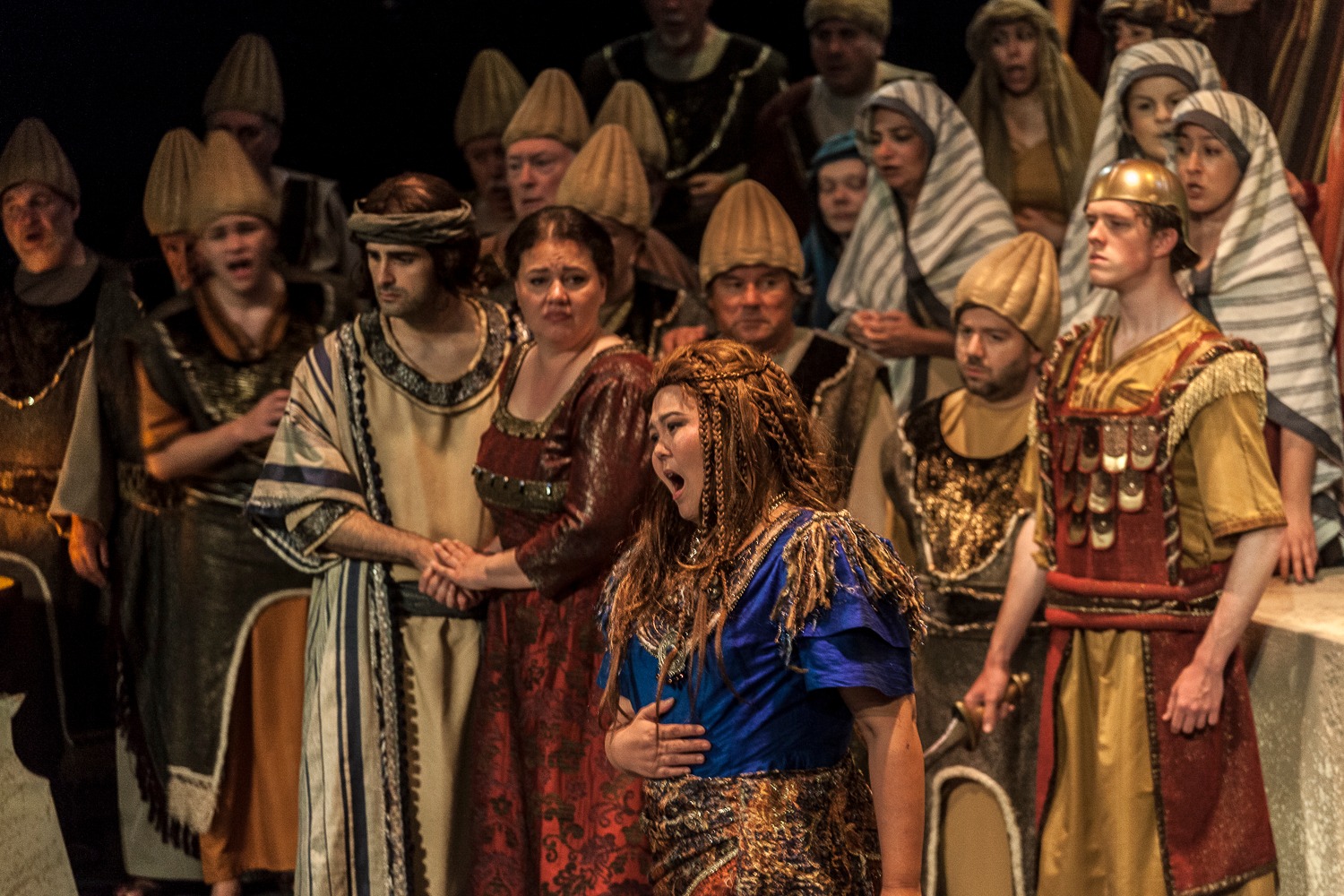
Albert G. Storace reviews the Gaulitana production of Nabucco, performed on 3rd May 2025.
Photos by Ken Scicluna,
Months of preparation, rehearsals, energy and commitment were behind this wonderful production. It almost came to grief when with just 24 hours to go Slovene soprano Rebeka Lokar cast for the role of Abigaille cancelled because of sudden illness. The kind of soprano needed for the part is not easy to find.
By some providential intervention or chance one was traced and brought over to Gozo via Malta. Hanying Tso is Chinese from Taiwan. There was no time for rehearsing after such a long flight. Relief must have been great yet fingers must have been crossed to. The result was amazing.
Nabucco (1842) was Verdi’s third opera but the first to attract international notice. His style still had to reach superior peaks of achievement but the ingredients were there. It is an undeniably lovely work. It is also the first of Verdi’s operas which is so rich in scoring for chorus.
The chorus is in almost continuous attendance in all four acts. It is a powerful element in the unfolding of the plot. Once all this has been said, one must congratulate the excellent singing of Gaulitanus Choir and how slick were the frequent comings and goings and acting the part well. All this thanks to Enrico Castiglione’s direction and strategy.
The three most powerful characters in the opera are Nabucco, Abigaille and Zaccaria. The two men are mutually hostile leaders while Abigaille’s extreme ambition and ruthlessness in usurping her presumed father’s throne is another pivotal driving force. In her case Abigaille other things on her mind such as an unrequited passion for Ismaele, a Hebrew royal prince who is in love with Fenena who loves him in turn, to Abigaille’s rage at both prince and her presumed half-sister. Abigaille’s furious outbursts tap the singer’s range from the lowest possible register to the highest with great splashes of coloratura. It is a killing role, yet Hanying Tso never wavered, never flagged; she perfectly knew her part. Her character only softened when confronting Ismaele and per force, as she was approaching her self-inflicted death.
Greek (Rhodiot) baritone Dimitris Tilakos had all it takes to make a convincing Nabucco, powerful and merciless ruler of the neo-Babylonian Empire. Tiliakos had a regal presence a powerful yet velvety voice. Reaching a peak of horrendous ambition to the outraged Hebrews, he proclaims himself as god. His blasphemy is punished and he loses his reason. Here the pathetic wreck of a man came out in his acting, effective because his mien was not exaggerated. One almost felt sorry for him. A Verdian touch is the first example of a common theme in many of his operas: that of the father/daughter relationship. Indeed, a double dose of it. With Abigaille who bullies him and mocks him, and in a well-planned coup, briefly seizes power. Angry with Fenena at first but when he recovers his reason, he is anxious regarding her safety. He recovers after begging God forgiveness and…according to the libretto, promises to build the Temple he had razed to the ground AND to convert to Judaism as Fenena had done.
Italian bass Mattia Denti as Zaccaria was the High Priest who led his people whom he urged to resist the enemy. This role he had to assume once Judah’s last king (Zedekiah) was defeated and blinded on Nabucco’s orders. He is a source of encouragement no matter how dangerous and difficult things get. When carried off with his people to slavery in Babylon he remains constant in his leadership. His voice was of course well-suited to the role, authoritative and determined.
Adding to the international flavour of the cast was Romanian mezzo-soprano Carmen Topciu as Fenena. She acted and sang her part very well as did our Maltese tenor Alan Sciberras as Ismaele. He had some tough singing to deliver especially in the great concertato mid-way through the opera. Bulgarian soprano Andriana Yordanova who lives in Malta, did very well as Anna (sister of Zaccaria). This smaller but supporting role was also very well-cast adding to the rich texture of the great concertato referred to above. Two minor roles were entrusted to Italian tenor Filippo Micale as Abdallo, a loyal Babylonian soldier, and to Chinese bass Zheng Wang as the High Priest of Baal.
Enrico Castiglione’s direction deserves all praise. His set design was fine yet plain and the only changes were the replacement of the seven-branched menorah with a statue of Baal when the plot shifted from Jerusalem to Babylon. There was never any hint of the Hanging Gardens or even of the banks of the Euphrates, where the Hebrew slaves are supposed to bemoan their fate. However, the great Va’ pensiero in Act 3 was gorgeously sung and was encored less the orchestral introduction. Thunderous applause followed both renditions. The costumes were of the best, the lights system very good too. The whole production team deserve every praise for this successful production.
Last but not least kudos yet again to the energetic Colin Attard for scoring another hit with his handling of the Malta Philharmonic Orchestra on its usual top form.
Thanks to all the main partners and sponsors who made possible this event.


